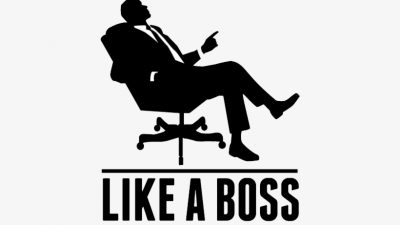This post is part of a bi-monthly series bought to you by Ayushi Mona for InsideIIM called 'Headstart'. This is post number nine in the early career series. 
Did you know that Google searches for 'boss' related career keywords far exceed keywords around learning or development? Yet, most conversations about the role of a boss/manager/leader tend to center around jokes, memes, or hushed conversations with colleagues and friends. There are far more people saying, "People leave bosses, not jobs" than people actually offering to help you recognize the right leader for you or helping you adapt your working style to their management style.
A good leader can play a pivotal role in the development of an early career professional be it recognizing, mentoring, molding, or rewarding potential. Yet, the onus is never on the leader alone, just like no general wins a battle by themself.
In my routine conversations with people who reach out for mentoring or queries, while early career professionals exhibit a high degree of frustration - they often isolate incidents and not root causes when they speak of these challenges. These very professionals also look at boss/leadership as probably the last criteria - choosing pay, brand name, role, flexibility, location, and a whole host of other factors.
The intent of this article is to help you sort this. Choosing the right boss is the first step and the below grid is a simplistic but good way to look at it.
Of course, personal likability and the ability to provide a challenging/fulfilling experience are the two parameters here but you can easily switch these into what could be an important criterion for you - for example, autonomy in working style and ability to provide a challenging work assignment, etc.

Step 1: Recognizing The Type Of Leadership
Many people go for months or even years without truly understanding the style of leadership someone possesses - for example, many managers are driven by the desire to be liked or feared or not be put on a pedestal. These personal styles are as critical as work priorities. Often, it is this and not work stresses that make the most difference to your time with a team.
Step 2: Recognizing Your Own Style Of Engagement With Management
Wherever 2 people come together, there is bound to be conflict. It is not necessary that this conflict is bad. For instance, since India is a hierarchical society, employees actually do not
disagree enough with management due to a belief in authoritarianism. Hence, figuring out how you are - is as important as figuring out how your management acts. For example - if you want detailed instructions, and your leader's style is hands-off then you will always feel that you do not get enough attention. Conversely, if you like working by yourself, you will feel stifled with anyone who is too bothered by attention to detail.
Step 3: Choose Or Optimize For A Successful Working Relationship
Most people have very little flexibility once they are in an organization or are in a career (such as in a traditional or governmental setup) to choose who they work with.
Hence, the most important thing to do is to evaluate your manager in as much depth as possible at the time of being interviewed or through secondary understanding with people who have worked for them previously.
Good questions for asking your manager at the hiring stage can look like:
- What are the priorities for you as a leader?
- What is the benchmark of development that you see for me a year down in this role?
- What kind of reporting/ checking in style do you follow?
- What is your feedback style?
Even when you have been matched with a certain manager or team - it is important to gauge how your working relationship is (often, but not always - leaders can move from being 'glad-handers' to 'role models' or to 'flakes or jerks'. Circumstances often dictate this.
Step 4: Work On It
Just like any other interpersonal human relationship - communicating and putting yourself in the other person's shoes can help go a long way. (For instance, a lot of young people, feel frustrated that their bosses are not innovative or creative enough - but if the primary role of their managers is stakeholder and expectation management - they will hardly prioritize creativity, which is an area where the subordinate can take charge.)
The ideal, of course, is to strive to work with someone who is a role model both in professional and personal terms. While this can often seem like working for a unicorn, many people routinely work with those who they find inspirational, so you should not let cynical conversations about bosses let you down.
Hope this post helped you out. Watch out for the 11th article in the Headstart series soon. Share these posts and leave feedback, requests, and suggestions in the comments below!
Connect with me on LinkedIn here.
Disclaimer: All views expressed are personal. All information copyright with author. Protected under Creative Commons. This is not a substitute for professional advice.




